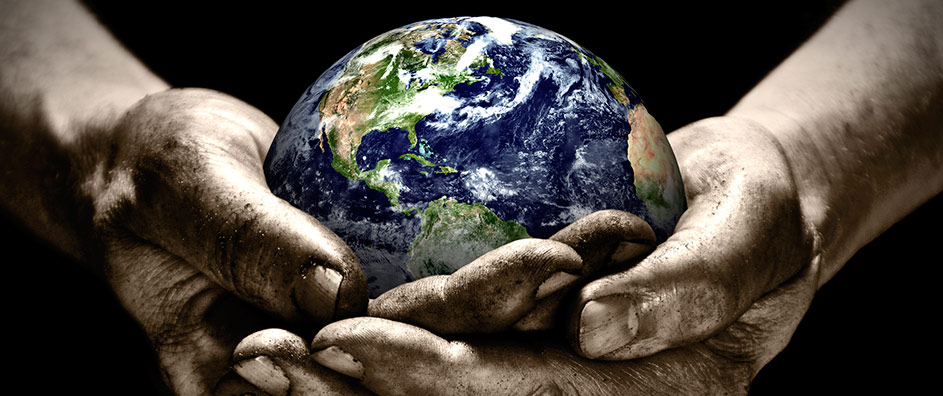The profound question reverberates through the annals of humanity: “With 11 billion people, can we have a peaceful world?” This poignant inquiry elicits a kaleidoscope of reflections, particularly when viewed through the prism of Bahá’í teachings. Nestled within the core tenets of this spiritual doctrine lies a vision that transcends mere coexistence, aspiring instead toward a harmonious global society. This essay endeavors to unpack the multitude of layers associated with this inquiry, delineating the challenges and opportunities presented by an ever-increasing global populace.
At the onset, one must ponder the sheer magnitude of 11 billion individuals inhabiting the Earth. Presently beset by numerous societal challenges, including conflict, poverty, and environmental degradation, the potential surge in population presents both a conundrum and an opportunity. Bahá’í teachings assert that unity is paramount for fostering a peaceful existence. Central to this doctrine is the principle of oneness of humanity, positing that all humans, irrespective of race or nationality, are interlinked in a collective destiny. Hence, the pursuit of peace with a burgeoning population becomes not only a possibility but an imperative.
Yet, the existential question remains: Will it be feasible to cultivate peace amidst such diversity? In addressing this dilemma, it is vital to explore the converging ideologies within humanity. The Bahá’í faith posits that understanding and appreciation of diverse cultures is essential. By fostering an attitude of inclusivity and respect for divergent perspectives, humanity can create a tapestry of collaboration rather than conflict. This perspective necessitates that we engage in dialogues that embrace the multiplicity of human experiences.
An alarming paradox exists, however. The more populous the Earth becomes, the more pronounced the inequalities can often become, engendering resentment and strife. The Bahá’í teachings implore individuals and communities to uphold justice as a foundational principle in the endeavor for peace. Justice, viewed as a composite of equity, fairness, and moral righteousness, acts as a lubricating agent, facilitating peaceful interactions among diverse populations. Thus, the challenge that arises is the imperative to redress systemic inequities as we approach this projected population milestone.
Furthermore, environmental sustainability emerges as an ancillary yet critical concern. The prospect of 11 billion individuals simultaneously striving for dignity, rights, and resources brings into focus the pressing issue of our planet’s health. Climate change and ecological degradation are harbingers of potential conflict, as competition for dwindling resources—such as water, arable land, and energy—intensifies. The Bahá’í teachings advocate for stewardship of the Earth, emphasizing the interconnectedness of all life and the moral obligation to protect the environment. Hence, sustainability must be seamlessly integrated into the societal frameworks that govern human interactions.
Education also serves as a pivotal tool in this quest. The Bahá’í teachings extol the virtues of education for all, positing it as an antidote to ignorance and prejudice. In a world where information is the currency of power, a well-educated populace can dismantle barriers and build bridges across divides. Education should not only impart knowledge but also cultivate virtues such as empathy, cooperation, and critical thinking—qualities essential for nurturing a peaceful coexistence among multitudes.
The psychological dimensions of peace cannot be overlooked in this discourse. The challenges presented by an expanding global population can engender feelings of anxiety and fear. The Bahá’í teachings underscore the need for the cultivation of inner peace as a precursor to collective tranquility. Spiritual practices that foster mindfulness, gratitude, and compassion can serve as antidotes to the tumultuous emotions that may arise in the face of unprecedented societal challenges. When individuals nurture their spiritual well-being, they contribute to a more serene global environment.
Moreover, the conception of governance necessitates a reevaluation as we contemplate the potential reality of a world with 11 billion inhabitants. The Bahá’í writings advocate for participatory governance, wherein individuals are actively engaged in decision-making processes. This democratic ethos fosters a sense of ownership and responsibility among citizens, engendering a commitment to peace and collaboration. In contrast, authoritarian regimes often exacerbate societal tensions, ultimately hindering the cultivation of a stable and peaceful milieu.
Yet, the road to peace is fraught with obstacles. Historical grievances, entrenched prejudices, and socio-economic disparities pose formidable challenges. The Bahá’í teachings encourage an approach rooted in forgiveness and reconciliation. Healing the wounds of the past requires a concerted effort toward dialogue and understanding. Confronting unresolved historical injustices becomes not merely a social responsibility but a moral obligation, guiding humanity toward a more equitable future.
As we envision the prospect of a global population reaching 11 billion, the call for solidarity reverberates more than ever. Bahá’í teachings posit that the spirit of love and unity should permeate interhuman relationships, fostering an environment where collaboration triumphs over discord. Systems of cooperation and interdependence must replace competition and isolationism, allowing individuals from varied backgrounds to contribute to the collective well-being.
In conclusion, the inquiry “With 11 billion people, can we have a peaceful world?” evokes both trepidation and hope. A resounding affirmation of this possibility can be found within the teachings of the Bahá’í faith, which emphasize unity, justice, and environmental stewardship as foundational principles. The intricate tapestry woven by billions of lives can indeed yield a harmonious existence, provided that humanity collectively embarks on the path of mutual understanding, equity, and purposeful action. The challenge is not insurmountable; rather, it presents a calling to harness the unique potential of every individual in the quest for eternal peace.
